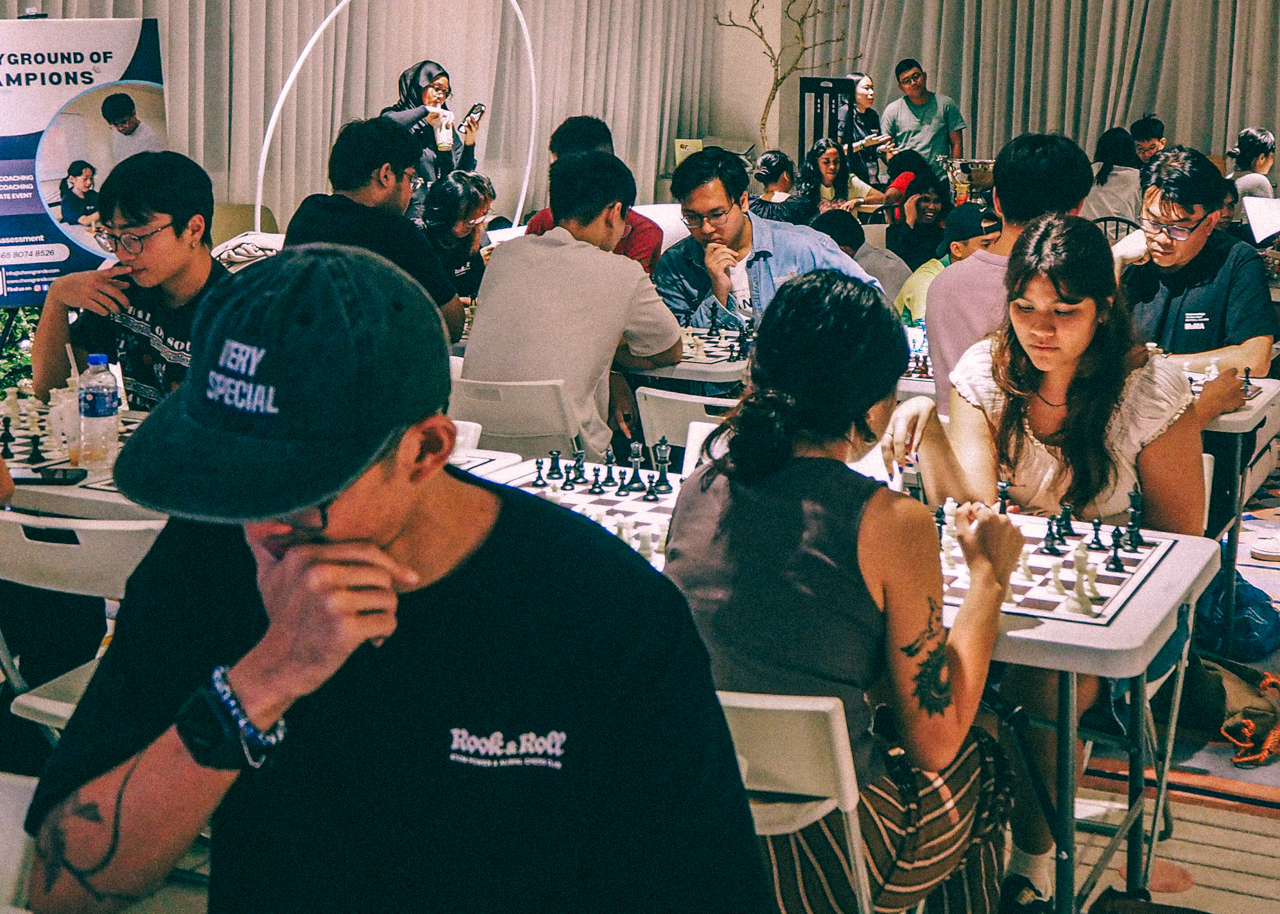All images by Swarnabho Sarkar.
A ragtag community of casual chess players in Singapore who meet monthly to sip teh, make moves, and talk for hours? Say less—I’m in.
Aliwal Chess Club (ACC) started as a group of friends who would hang out at the Aliwal Street area (hence the first part of the name) and play chess (hence the second part of the name). As more passersby stopped to watch, many jumped in to play, too. Before long, what began as a DIY outpost for impromptu games transformed into a regular haven for chess veterans and clueless-but-curious rookies alike.
None of my friends play chess. I do, but the thought of showing up solo to ACC events has always been enough to keep me away.
But as I close the chapter on my university days and stare down the barrel of a hectic, solitary adult life, it feels like now’s the time to shake things up. What’s the worst that can happen? A checkmate from a 7-year-old?
I’ll survive. I think.
Opening Moves
Smooth jazz welcomes me from outside the unit of an industrial building in the depths of Toa Payoh. Odd place to play chess, I think. But from what I know, these guys play anywhere from Haji Lane to the grass patches of Fort Canning Park.
It’s a surreal sight. Rows of people are engrossed in games of chess, yet there’s a surprising lightheartedness in the room. The velvety live jazz renditions of pop songs add to the chill atmosphere of the dimly lit space.
There are just as many people playing chess in the centre of the room as there are people around it appreciating the music, catching up with old friends, and getting to know new ones.
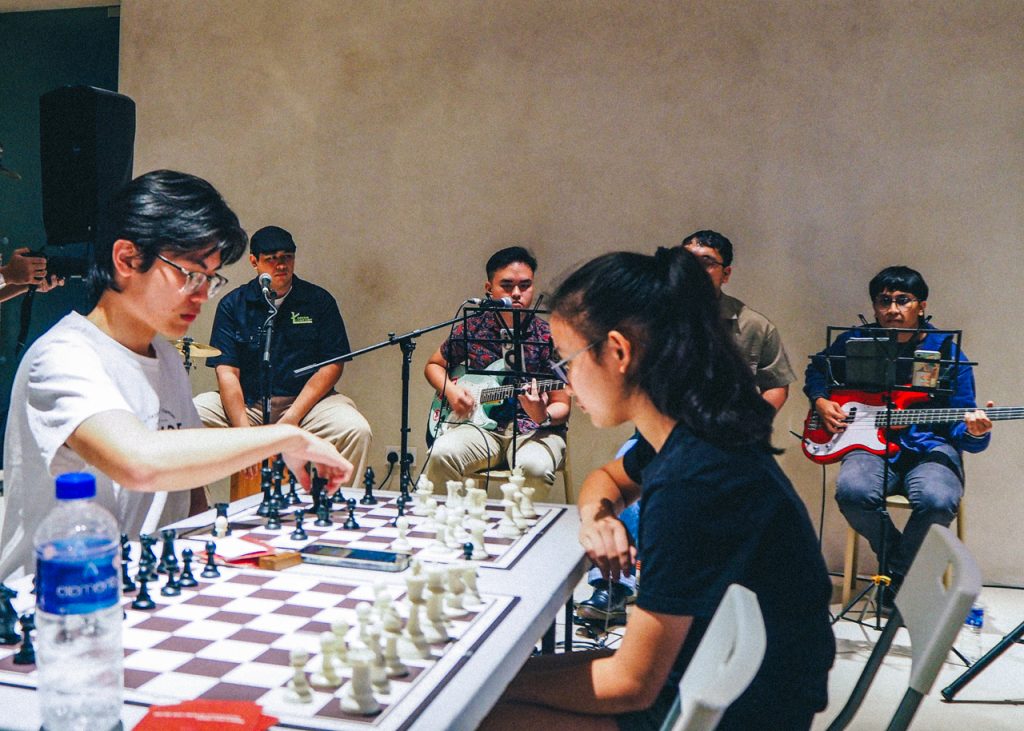
I linger near a chess board and wait for someone to approach me to play; I’m too shy to be proactive.
A guy who looks around my age comes up and offers to play. We shake hands, and he proceeds to wreck me effortlessly. The entire time he’s making his moves, he’s casually chatting with his two friends locked in an intense match beside us.
He wins, thanks me for the game, and walks off before I can even catch his name.
Score: 0. For both games won and friendships made.
Things can only get better, right? I strike up a conversation with a guy sitting beside me, a 25-year-old project engineer named Syazwan, and his friend Hana, a 25-year-old self-described “IT gal”. Both are long-time attendees of ACC events.
“They give you a beginner-friendly step into chess to break the stigma of chess being serious,” Syazwan tells me.
Scanning the room, Syazwan’s words hit home. Sure, some players are laser-focused on their games, but there’s no cutthroat Queen’s Gambit energy here. The vibe is laid-back, the tension nonexistent—everyone’s just here for a good time.
“Some of us come with our friends. And then some come alone and make friends here,” Hana remarks.
“Even when there are different groups, we are more than happy to welcome anyone new or alone.”
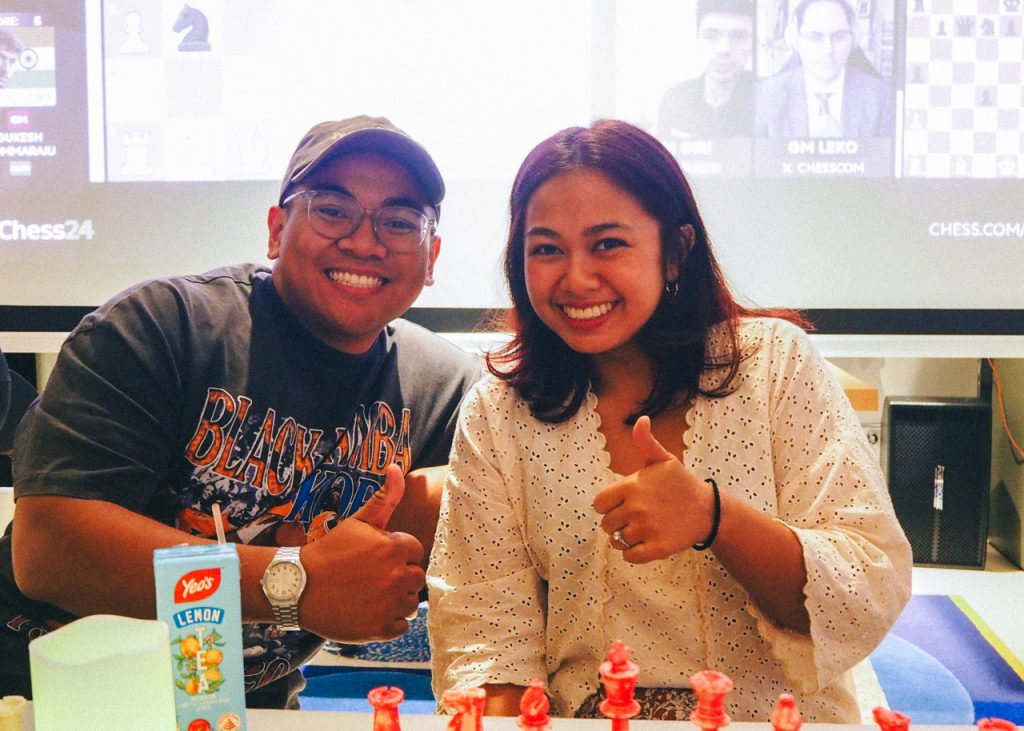
The club truly does have a friendly and non-judgemental atmosphere. There are experienced players going head to head, playing timed games with their own chess clocks. There are new players being taught the basics by friends.
So far so good. ACC feels like a space where people matter more than the pieces—the game is just an excuse to bring everyone together. I wander off to find a new match and potential friend.
Applying Pressure
My next opponent, a 20-year-old NSF named Isaac, tells me how ACC is worlds apart from the typical chess event.
“If you go to open tournaments, you’ll notice it’s just a sea of 8-year-olds. The demographic of chess players in Singapore is still predominantly kids who get pressured by their parents. That’s how it is, lah.”
It’s not a new story. Plenty of friends stopped playing an instrument, participating in a sport, or pursuing their art because their parents or schools pushed them not just to be good but to be the best in the field. When their kids’ hobbies become an investment for parents, the pressure to deliver returns can quickly turn passion into obligation.
ACC is flipping the script. It’s no longer about sharpening cognitive skills for competition—it’s about rediscovering chess as a fun, engaging strategy game. In doing so, ACC is reshaping what chess means in Singapore.
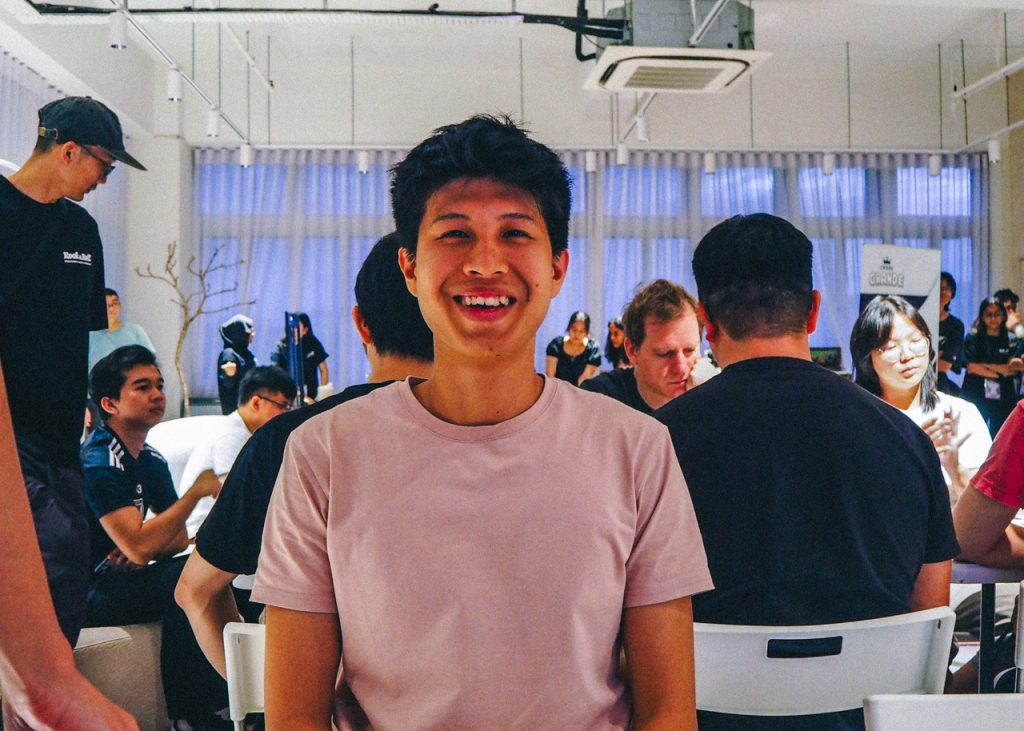
Isaac’s friend stands by our table and follows our game closely as we play. He groans and tuts at a move Isaac makes. Apparently, Isaac has blundered, but I’m not good enough to identify exactly what advantage I’ve gained.
I end up winning, and he asks for my rating1. I tell him I’m only rated 1100. His friend’s mouth drops, and Isaac looks a little embarrassed. He sheepishly reveals that his rating is 1600.
We shake hands, and as he walks off I realise that may have been one of the high points of my life. Then I realise that’s not the point.
Yes, it’s a game with an official ranking system that tells you just how much better or worse your opponent is. But that number, that comparison, doesn’t define anything beyond the game itself. What I truly relished was the connection, the challenge, and that shared experience between two strangers.
Still, winning feels good. Hoping to keep the wins going, I head over to someone sitting in front of an empty chessboard.
Matiin is a 38-year-old senior engineer from Brunei, and he’s been playing chess for almost 20 years. He got into it as a kid, feeling the pressure of being the only one at school who didn’t know how to play while his classmates constantly battled it out during breaks.
I can’t imagine any kid today going home and desperately learning chess just to keep up with friends pulling out their boards during recess. Maybe the current equivalent is Brawl Stars or something.
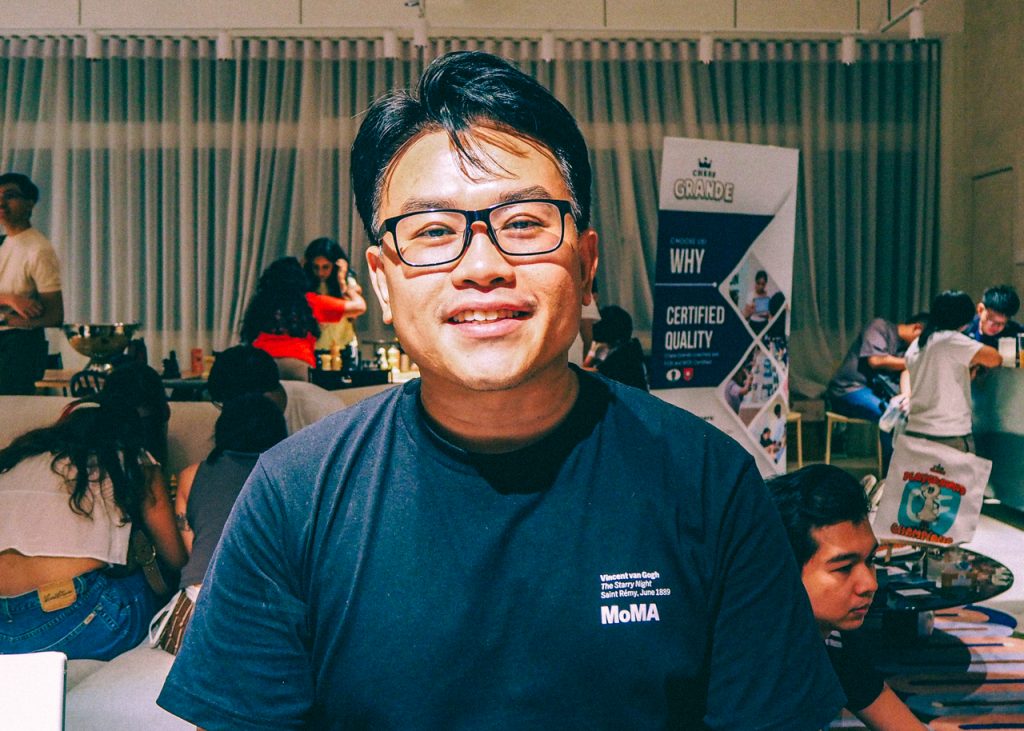
I ask him for his rating.
“2014.”
I prepare to lose abysmally.
As he slaughters my pieces one by one, I can’t help but remember how he claimed he’s “not very good” because he hasn’t played in a while. My favourite thing about chess players? They all insist they’re not that good—no matter how much they wipe the floor with you.
I apologise for being a beginner. He laughs and says, “No worries. As long as you can play chess, that’s good enough.”
Somehow, losing doesn’t feel so bad anymore. There’s no hope left in my game, and I resign2.
Matiin tells me how he began searching for local chess social clubs when he moved to Singapore recently. The ones he tried out before ACC were “too serious”, he says.
“I think the people don’t come here just to win games; they also come to socialise, get to know people and the scene, and, of course, improve their game at the same time. It’s less competitive, but they make chess part of your life.”
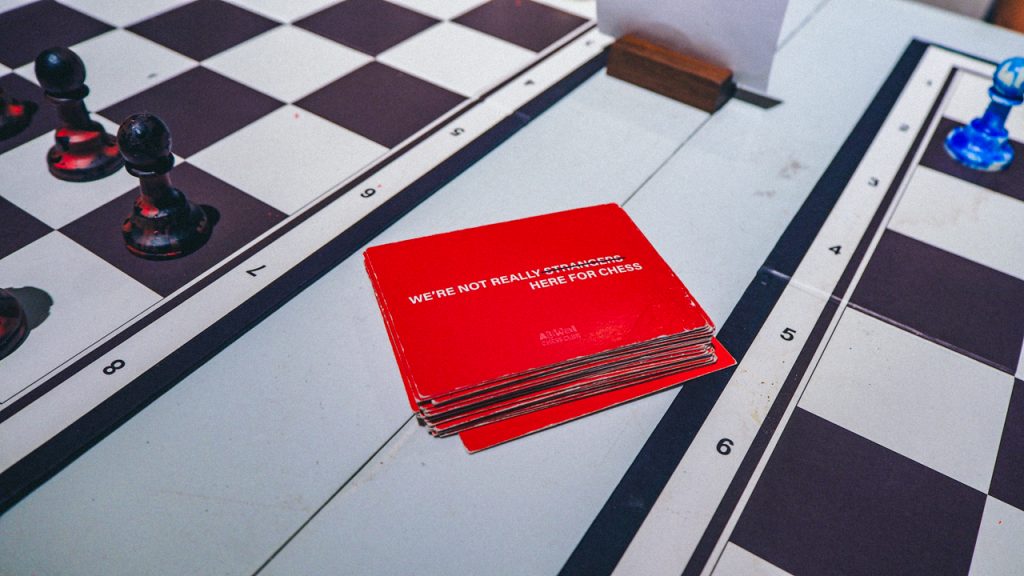
It reminded me of the time when I got kicked out of my school’s rugby club for being a novice. At the time, I was a scrawny 21-year-old new to the sport. Despite playing with big, buff dudes who all had some kind of rugby background, it felt like a good way to make friends in college.
As the club was transitioning into a competitive team and didn’t want recreational members or those who were still learning how to play. I don’t know if any of you have ever been fired from a CCA for being shit, but it doesn’t do wonders for your self-confidence.
I don’t hold it against them—I would not have helped them win trophies. But it does make you think. Why do we have to be the best in every aspect of our lives? Why do we tend to sap the joy out of activities meant for leisure or pure enjoyment?
At ACC, it doesn’t matter how good or bad you are. It just matters that you’re there and contributing to a positive community.
We’re All Kings Here
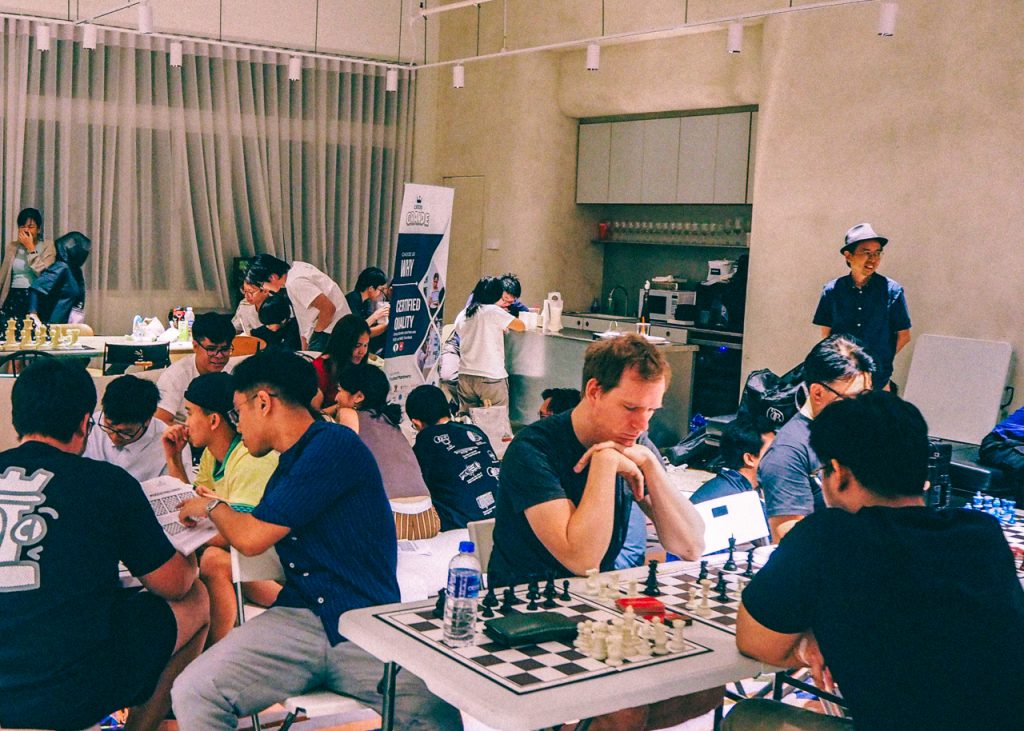
A guy comes up to me and says he likes the music my band t-shirt3 features. We become enthralled in a conversation about the local alternative music scene, bands we like, bands we hate, and concerts we’ve been to.
I ask him if he wants to play a game and he says sure.
I’m sitting across from Adnin, a 25-year-old craftsman of props and costumes for theatre productions. He’s been coming to ACC events for the past two years. He tells me how the demographic of players has changed since the start of ACC. Initially, the club was mostly “Malay-centric” because the social circles of regulars consisted of mostly Malay friends. The makeup of attendees became increasingly diverse over time.
“You started seeing a lot more kids. It was nice ah to see all the kids and everything. What’s not as nice is getting schooled by a child,” he offers.
“Have you ever been trash-talked by a 14-year-old before? I’m telling you now. Not a good feeling at all.”

In a sense, ACC is a picture of Singapore’s microcosm. All races, all ages, and all backgrounds bonding harmoniously à la NDP music videos.
It’s communities like this that allow us to truly meet someone outside of our usual social bubbles. The chess board simply acts as a bridge to know the person sitting across from you better. It’s an antidote for those who feel that they’re too withdrawn for their own good.
Yes, you could play in silence, but as Adnin puts it, why the hell would you do that?
“I think that’s just the Singaporean mindset. People are so reserved […] and there’s always this weird barrier. I don’t know if it’s because we’re so obsessed with this rat race that we constantly live in so people don’t slow down,” says Adnin.
No surprises here. Our culture is shaped by the grind—long hours, school pressure, and endless commitments that leave little room for real socialising. The digital world is always a click away, easier than the discomfort of meeting someone new. Doomscrolling and sending memes to each other feels far less taxing than navigating awkward small talk with a stranger.
ACC’s effort to create a space where people feel at ease is intentional. Accessible, judgement-free, and diverse third spaces are rare. There aren’t many places in Singapore where you’d see a teenager and a working adult geek out over the same thing and connect with each other in the process.
“I would say it’s definitely important—having these opportunities to meet different people. I honestly find it so beautiful lah,” Adnin says.
As Singapore’s social fabric shifts—more exhausted, more online, and more disconnected from one another—communities like ACC are crucial. They’re not just spaces; they’re vital threads, stitching together perspectives that might otherwise never meet, holding us together in an increasingly fractured world.
Adnin and I exchange Instagram handles before he gets up to leave. I realise I’ve made a new friend.
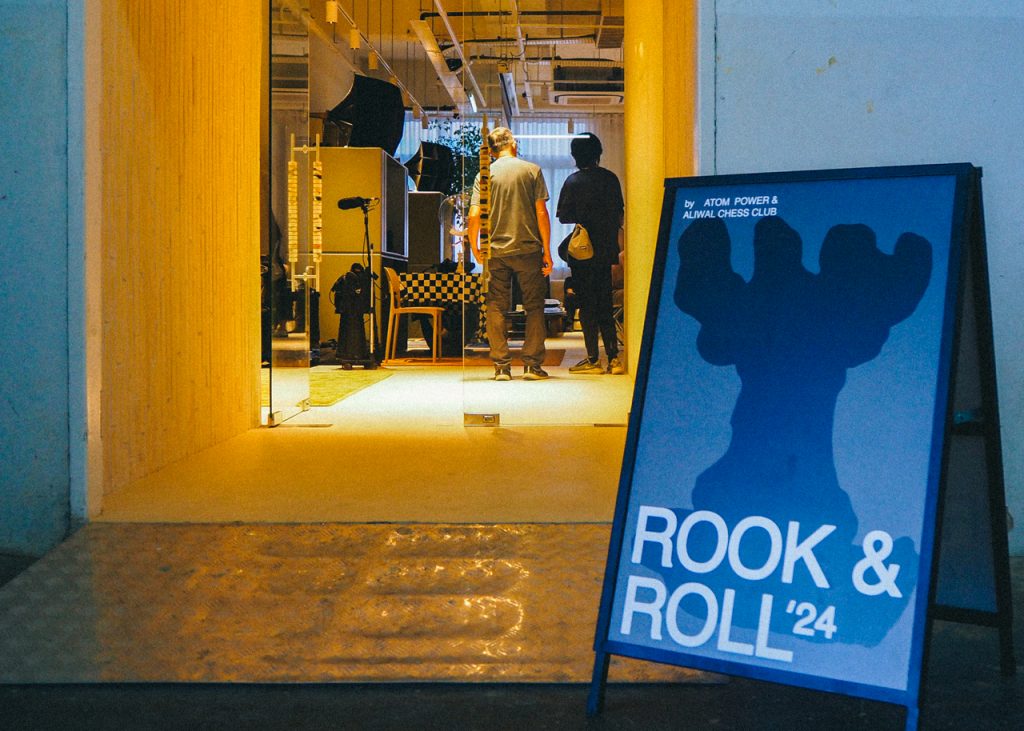
Flipping the Board
I stick around to play a couple more games. I win one, I lose one, and another ends in a draw4.
One of my opponents tells me he’ll see me at the next event and we can play again then. I’m seeing the effectiveness of the club play out in real time.
It’s heartening that a club that mirrors Singapore’s diversity succeed in fostering genuine connections. It proves that when the weight of expectations lifts, Singaporeans can shed their inhibitions and open up.
ACC meet-ups—and events like these—transform what’s often a daunting experience into something inviting. They also reveal that we do crave meaningful connections; we just don’t always have the right spaces to make them happen. And you can’t force the creation of a community either; you just have to let these things grow by themselves.
In a society that demands perfection at every corner, and a world that increasingly isolates us, we need more spaces like ACC—where the only expectation is showing up, and everyone is free to simply be.
Making connections doesn’t always have to mean stepping out of your comfort zone. With communities as open as ACC, sometimes the only thing required is the courage to make the first move.
- 1. A chess rating is a number that estimates a chess player’s current strength and likeliness to win relative to other players. It is similar to rank systems in video games; a bronze-rated player is unlikely to defeat a player that has a diamond rank, for example. ↩︎
2. Resigning is not uncommon in chess. Oftentimes, when a player is in a losing position and it’s clear that the opponent is going to win unless they make a huge blunder, players will resign as the loss is practically inevitable. ↩︎
3. It’s a Title Fight shirt from their Hyperview era, if anyone’s wondering. ↩︎
4. Not that it matters, but my final record for the day was 3W-1D-5L. A week after the events of this article, I attended another ACC event where I went 1W-0D-1L; I won against a 7-year-old and lost to a 10-year-old, but who’s counting? ↩︎

